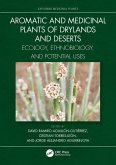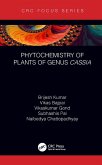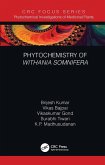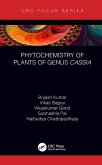Aromatic and Medicinal Plants of Drylands and Deserts (eBook, ePUB)
Ecology, Ethnobiology, and Potential Uses
Redaktion: Aguillón-Gutiérrez, David Ramiro; Aguirre-Joya, Jorge Alejandro; Torres-León, Cristian
173,95 €
173,95 €
inkl. MwSt.
Sofort per Download lieferbar

87 °P sammeln
173,95 €
Als Download kaufen

173,95 €
inkl. MwSt.
Sofort per Download lieferbar

87 °P sammeln
Jetzt verschenken
Alle Infos zum eBook verschenken
173,95 €
inkl. MwSt.
Sofort per Download lieferbar
Alle Infos zum eBook verschenken

87 °P sammeln
Aromatic and Medicinal Plants of Drylands and Deserts (eBook, ePUB)
Ecology, Ethnobiology, and Potential Uses
Redaktion: Aguillón-Gutiérrez, David Ramiro; Aguirre-Joya, Jorge Alejandro; Torres-León, Cristian
- Format: ePub
- Merkliste
- Auf die Merkliste
- Bewerten Bewerten
- Teilen
- Produkt teilen
- Produkterinnerung
- Produkterinnerung

Bitte loggen Sie sich zunächst in Ihr Kundenkonto ein oder registrieren Sie sich bei
bücher.de, um das eBook-Abo tolino select nutzen zu können.
Hier können Sie sich einloggen
Hier können Sie sich einloggen
Sie sind bereits eingeloggt. Klicken Sie auf 2. tolino select Abo, um fortzufahren.

Bitte loggen Sie sich zunächst in Ihr Kundenkonto ein oder registrieren Sie sich bei bücher.de, um das eBook-Abo tolino select nutzen zu können.
The description and analysis of the Mexican and other countries desertic plants from the point of view of their use in traditional medicine and their potential use in integrative medicine is the overall theme of this book.
- Geräte: eReader
- mit Kopierschutz
- eBook Hilfe
Andere Kunden interessierten sich auch für
![Aromatic and Medicinal Plants of Drylands and Deserts (eBook, PDF) Aromatic and Medicinal Plants of Drylands and Deserts (eBook, PDF)]() Aromatic and Medicinal Plants of Drylands and Deserts (eBook, PDF)173,95 €
Aromatic and Medicinal Plants of Drylands and Deserts (eBook, PDF)173,95 €![Phytochemistry of Plants of Genus Cassia (eBook, ePUB) Phytochemistry of Plants of Genus Cassia (eBook, ePUB)]() Brijesh KumarPhytochemistry of Plants of Genus Cassia (eBook, ePUB)19,95 €
Brijesh KumarPhytochemistry of Plants of Genus Cassia (eBook, ePUB)19,95 €![Phytochemistry of Withania somnifera (eBook, ePUB) Phytochemistry of Withania somnifera (eBook, ePUB)]() Brijesh KumarPhytochemistry of Withania somnifera (eBook, ePUB)20,95 €
Brijesh KumarPhytochemistry of Withania somnifera (eBook, ePUB)20,95 €![Phytochemistry of Plants of Genus Cassia (eBook, PDF) Phytochemistry of Plants of Genus Cassia (eBook, PDF)]() Brijesh KumarPhytochemistry of Plants of Genus Cassia (eBook, PDF)19,95 €
Brijesh KumarPhytochemistry of Plants of Genus Cassia (eBook, PDF)19,95 €![Medicinal Plants (eBook, ePUB) Medicinal Plants (eBook, ePUB)]() Medicinal Plants (eBook, ePUB)183,95 €
Medicinal Plants (eBook, ePUB)183,95 €![Herbal Principles in Cosmetics (eBook, ePUB) Herbal Principles in Cosmetics (eBook, ePUB)]() Bruno BurlandoHerbal Principles in Cosmetics (eBook, ePUB)199,95 €
Bruno BurlandoHerbal Principles in Cosmetics (eBook, ePUB)199,95 €![The Healing Power of Ginseng (eBook, ePUB) The Healing Power of Ginseng (eBook, ePUB)]() Joseph P. HouThe Healing Power of Ginseng (eBook, ePUB)53,95 €
Joseph P. HouThe Healing Power of Ginseng (eBook, ePUB)53,95 €-
-
-
The description and analysis of the Mexican and other countries desertic plants from the point of view of their use in traditional medicine and their potential use in integrative medicine is the overall theme of this book.
Dieser Download kann aus rechtlichen Gründen nur mit Rechnungsadresse in A, B, BG, CY, CZ, D, DK, EW, E, FIN, F, GR, HR, H, IRL, I, LT, L, LR, M, NL, PL, P, R, S, SLO, SK ausgeliefert werden.
Produktdetails
- Produktdetails
- Verlag: Taylor & Francis eBooks
- Seitenzahl: 303
- Erscheinungstermin: 2. Mai 2023
- Englisch
- ISBN-13: 9781000863673
- Artikelnr.: 67605945
- Verlag: Taylor & Francis eBooks
- Seitenzahl: 303
- Erscheinungstermin: 2. Mai 2023
- Englisch
- ISBN-13: 9781000863673
- Artikelnr.: 67605945
- Herstellerkennzeichnung Die Herstellerinformationen sind derzeit nicht verfügbar.
David Ramiro Aguillón-Gutiérrez, PhD, graduated from Faculty of Veterinary Medicine and Animal Sciences, Autonomous University of Nuevo Leon, Mexico, in 2003. He earnedhis Specialist degree in Occupational Health from the Autonomous University of Noreste (Mexico), MSc degree in Biological Sciences (Specialist in Embryology) from Lomonosov Moscow State University, Russia, in 2009, and his PhD in Biological Sciences (Specialist in Embryology and Zoology) also from the same University in 2012. From 2013 to 2014 he was a Postdoctoral Researcher in Biodiversity and Conservation at the Autonomous University of the State of Hidalgo, Mexico. Currently he is a full-time research-professor at the Autonomous University of Coahuila, Mexico and a member of the National System of Researches (Mexico). He has published 25 peer-reviewed papers, five book chapters and three books (two as author and one as editor). Cristian Torres-León, PhD, is Professor, Research Center and Ethnobiological Garden, Autonomous University of Coahuila, Mexico. Cristian Torres-León completed a degree in Agroindustrial Engineering (2013) from the National University of Colombia before earning his Master's (2016) and PhD (2019) in Food Science and Technology, both from the Autonomous University of Coahuila in Mexico. In addition, he completed a PhD (2019) in Biotechnology at the Federal University of Pernambuco in Brazil. Dr. Torres-León worked as a Young Researcher at the Colombian Ministry of Science between 2013 and 2014 and has undertaken a research stay at the University of Minho in Portugal (2016). Dr. Torres-León has evaluated projects for government organizations, and his activities and accomplishments include conferences, seminars, workshops, and the publication of 26 scientific papers in indexed journals and 16 book chapters. He is now a full professor at the Autonomous University of Coahuila, Mexico, and mainly works in the Food Science and Technology area with an emphasis on biodegradable packaging, phenolic compounds, use of agro-industrial waste, fermentation technologies, ethnopharmacology, and food security. Jorge Aguirre-Joya, PhD, is full-time Professor at the Autonomous University of Coahuila, Mexico. He is a chemical pharmacologist with a degree from the Universidad Autonoma de Coahuila (2011). He earned a Master's degree in Food Science and Technology by the Autonomous University of Coahuila in Mexico (2014) and earned his PhD in Food Science and Technology in 2018 from the same university. Currently, he is Dean of the Research Center and Ethnobiological Garden from the Semidesert of Coahuila. He has published 12 peer-reviewed papers, 15 book chapters and one book as an editor. Also, he has participated in and coordinated 10 technology transfer projects. Professor Aguirre-Joya is member of the National System of Reserches (Mexico) and serves as reviewer for several notable journals.
Preface Chapter 1 Introduction to plant taxonomy: vascular and non
vascular plants with medicinal use. Muro
Pérez G., Sánchez
Salas J., Cano
Villegas O., López
García R., Valenzuela
Núñez L. M. Chapter 2 Mexican desertic medicinal plants: biology, ecology, and distribution. Hernández
Herrera J. A., Valenzuela
Núñez L. M., Encina
Domínguez J. A., Martínez
Sifuentes A. R., Lara
Reimers E. A., Navarrete
Molina C. Chapter 3 Mexican Desert: Health and biotechnological properties potential of some cacti species (Cactaceae). Trujillo J., Pérez
Miranda S., Ramírez
Hernández A., Muñiz
Ramírez A., García
Campoy A.H., Ramírez
Rodríguez Y. Chapter 4 Potential of plants from the arid zone of Coahuila in Mexico for the extraction of essential oils. Solís
Quiroz O. S., González
Machado A. C., Aguirre
Joya J. A., Aguillón
Gutiérrez D. R., Ramírez
Moreno A., Torres
León C. Chapter 5 Ethnopharmacology of important Aromatic Medicinal plants of the Caatinga, Northeastern Brazil. Olaitan
Balogun S., Medeiros
Bandeira M. A., do Nascimento
Magalhães K., Lima
Soares I. Chapter 6 Plants of the Chihuahuan Semi
desert for the Control of Phytopathogens. Cándido
del Toro C. A., Arredondo
Valdés R., Govea
Salas M., Anguiano
Cabello J. C., Segura
Ceniceros E. P., Ramos
González R., Ascacio
Valdés J. A., Laredo Alcalá E. I., Iliná A. Chapter 7 Phytochemical compounds from desert plants to management of plant
parasitic nematodes. Marco Tucuch
Pérez A., Arredondo
Valdés R., Hernández
Castillo F. D., Ochoa
Fuentes Y. M., Laredo Alcalá E. I., Anguiano
Cabello J. C. Chapter 8 Plant phytochemicals from the Chihuahuan semi
desert with possible herbicidal actions. Barroso
Ake A. C., Arredondo
Valdés R., Ramos
González R., Laredo
Alcalá E. I., Aguilar
González C. N., Ascacio
Valdés J. A., Govea
Salas M., Iliná A., Tucuh
Peréz M. A. Chapter 9 ¬Chemical and bioactive compounds from Mexican desertic medicinal plants. López
Romero J. C., Torres
Moreno H., Ireta
Paredes A. R., Charles
Rodríguez A. V., Flores
López M. L. Chapter 10 Edible coating based on chia (Salvia hispanica L.) functionalized with Rhus microphylla fruit extract to improve the cucumber (Cucumis sativus L.) shelf life. Charles
Rodríguez AV., Reyes
de la Luz M., Guía
García J. L., Peña
Ramos F.M., Robledo
Olivo A., Hench
Cabrera A. F., Flores
López M. L. Chapter 11 Larrea tridentata: bioactive compounds, biological activities and its potential use in phytopharmaceuticals improvement. López
Romero J. C., Torres
Moreno H, Rodríguez
Martínez K. L., Suárez
García A. del C., Beltrán
Martínez M. E., García
Dávila J. Chapter 12 Toxicological aspects of medicinal plants that growth in drylands and polluted environments. Pérez
Morales R., Téllez López M. A., Olivas Calderón E. H., González
Zamora A.
vascular plants with medicinal use. Muro
Pérez G., Sánchez
Salas J., Cano
Villegas O., López
García R., Valenzuela
Núñez L. M. Chapter 2 Mexican desertic medicinal plants: biology, ecology, and distribution. Hernández
Herrera J. A., Valenzuela
Núñez L. M., Encina
Domínguez J. A., Martínez
Sifuentes A. R., Lara
Reimers E. A., Navarrete
Molina C. Chapter 3 Mexican Desert: Health and biotechnological properties potential of some cacti species (Cactaceae). Trujillo J., Pérez
Miranda S., Ramírez
Hernández A., Muñiz
Ramírez A., García
Campoy A.H., Ramírez
Rodríguez Y. Chapter 4 Potential of plants from the arid zone of Coahuila in Mexico for the extraction of essential oils. Solís
Quiroz O. S., González
Machado A. C., Aguirre
Joya J. A., Aguillón
Gutiérrez D. R., Ramírez
Moreno A., Torres
León C. Chapter 5 Ethnopharmacology of important Aromatic Medicinal plants of the Caatinga, Northeastern Brazil. Olaitan
Balogun S., Medeiros
Bandeira M. A., do Nascimento
Magalhães K., Lima
Soares I. Chapter 6 Plants of the Chihuahuan Semi
desert for the Control of Phytopathogens. Cándido
del Toro C. A., Arredondo
Valdés R., Govea
Salas M., Anguiano
Cabello J. C., Segura
Ceniceros E. P., Ramos
González R., Ascacio
Valdés J. A., Laredo Alcalá E. I., Iliná A. Chapter 7 Phytochemical compounds from desert plants to management of plant
parasitic nematodes. Marco Tucuch
Pérez A., Arredondo
Valdés R., Hernández
Castillo F. D., Ochoa
Fuentes Y. M., Laredo Alcalá E. I., Anguiano
Cabello J. C. Chapter 8 Plant phytochemicals from the Chihuahuan semi
desert with possible herbicidal actions. Barroso
Ake A. C., Arredondo
Valdés R., Ramos
González R., Laredo
Alcalá E. I., Aguilar
González C. N., Ascacio
Valdés J. A., Govea
Salas M., Iliná A., Tucuh
Peréz M. A. Chapter 9 ¬Chemical and bioactive compounds from Mexican desertic medicinal plants. López
Romero J. C., Torres
Moreno H., Ireta
Paredes A. R., Charles
Rodríguez A. V., Flores
López M. L. Chapter 10 Edible coating based on chia (Salvia hispanica L.) functionalized with Rhus microphylla fruit extract to improve the cucumber (Cucumis sativus L.) shelf life. Charles
Rodríguez AV., Reyes
de la Luz M., Guía
García J. L., Peña
Ramos F.M., Robledo
Olivo A., Hench
Cabrera A. F., Flores
López M. L. Chapter 11 Larrea tridentata: bioactive compounds, biological activities and its potential use in phytopharmaceuticals improvement. López
Romero J. C., Torres
Moreno H, Rodríguez
Martínez K. L., Suárez
García A. del C., Beltrán
Martínez M. E., García
Dávila J. Chapter 12 Toxicological aspects of medicinal plants that growth in drylands and polluted environments. Pérez
Morales R., Téllez López M. A., Olivas Calderón E. H., González
Zamora A.
Preface Chapter 1 Introduction to plant taxonomy: vascular and non
vascular plants with medicinal use. Muro
Pérez G., Sánchez
Salas J., Cano
Villegas O., López
García R., Valenzuela
Núñez L. M. Chapter 2 Mexican desertic medicinal plants: biology, ecology, and distribution. Hernández
Herrera J. A., Valenzuela
Núñez L. M., Encina
Domínguez J. A., Martínez
Sifuentes A. R., Lara
Reimers E. A., Navarrete
Molina C. Chapter 3 Mexican Desert: Health and biotechnological properties potential of some cacti species (Cactaceae). Trujillo J., Pérez
Miranda S., Ramírez
Hernández A., Muñiz
Ramírez A., García
Campoy A.H., Ramírez
Rodríguez Y. Chapter 4 Potential of plants from the arid zone of Coahuila in Mexico for the extraction of essential oils. Solís
Quiroz O. S., González
Machado A. C., Aguirre
Joya J. A., Aguillón
Gutiérrez D. R., Ramírez
Moreno A., Torres
León C. Chapter 5 Ethnopharmacology of important Aromatic Medicinal plants of the Caatinga, Northeastern Brazil. Olaitan
Balogun S., Medeiros
Bandeira M. A., do Nascimento
Magalhães K., Lima
Soares I. Chapter 6 Plants of the Chihuahuan Semi
desert for the Control of Phytopathogens. Cándido
del Toro C. A., Arredondo
Valdés R., Govea
Salas M., Anguiano
Cabello J. C., Segura
Ceniceros E. P., Ramos
González R., Ascacio
Valdés J. A., Laredo Alcalá E. I., Iliná A. Chapter 7 Phytochemical compounds from desert plants to management of plant
parasitic nematodes. Marco Tucuch
Pérez A., Arredondo
Valdés R., Hernández
Castillo F. D., Ochoa
Fuentes Y. M., Laredo Alcalá E. I., Anguiano
Cabello J. C. Chapter 8 Plant phytochemicals from the Chihuahuan semi
desert with possible herbicidal actions. Barroso
Ake A. C., Arredondo
Valdés R., Ramos
González R., Laredo
Alcalá E. I., Aguilar
González C. N., Ascacio
Valdés J. A., Govea
Salas M., Iliná A., Tucuh
Peréz M. A. Chapter 9 ¬Chemical and bioactive compounds from Mexican desertic medicinal plants. López
Romero J. C., Torres
Moreno H., Ireta
Paredes A. R., Charles
Rodríguez A. V., Flores
López M. L. Chapter 10 Edible coating based on chia (Salvia hispanica L.) functionalized with Rhus microphylla fruit extract to improve the cucumber (Cucumis sativus L.) shelf life. Charles
Rodríguez AV., Reyes
de la Luz M., Guía
García J. L., Peña
Ramos F.M., Robledo
Olivo A., Hench
Cabrera A. F., Flores
López M. L. Chapter 11 Larrea tridentata: bioactive compounds, biological activities and its potential use in phytopharmaceuticals improvement. López
Romero J. C., Torres
Moreno H, Rodríguez
Martínez K. L., Suárez
García A. del C., Beltrán
Martínez M. E., García
Dávila J. Chapter 12 Toxicological aspects of medicinal plants that growth in drylands and polluted environments. Pérez
Morales R., Téllez López M. A., Olivas Calderón E. H., González
Zamora A.
vascular plants with medicinal use. Muro
Pérez G., Sánchez
Salas J., Cano
Villegas O., López
García R., Valenzuela
Núñez L. M. Chapter 2 Mexican desertic medicinal plants: biology, ecology, and distribution. Hernández
Herrera J. A., Valenzuela
Núñez L. M., Encina
Domínguez J. A., Martínez
Sifuentes A. R., Lara
Reimers E. A., Navarrete
Molina C. Chapter 3 Mexican Desert: Health and biotechnological properties potential of some cacti species (Cactaceae). Trujillo J., Pérez
Miranda S., Ramírez
Hernández A., Muñiz
Ramírez A., García
Campoy A.H., Ramírez
Rodríguez Y. Chapter 4 Potential of plants from the arid zone of Coahuila in Mexico for the extraction of essential oils. Solís
Quiroz O. S., González
Machado A. C., Aguirre
Joya J. A., Aguillón
Gutiérrez D. R., Ramírez
Moreno A., Torres
León C. Chapter 5 Ethnopharmacology of important Aromatic Medicinal plants of the Caatinga, Northeastern Brazil. Olaitan
Balogun S., Medeiros
Bandeira M. A., do Nascimento
Magalhães K., Lima
Soares I. Chapter 6 Plants of the Chihuahuan Semi
desert for the Control of Phytopathogens. Cándido
del Toro C. A., Arredondo
Valdés R., Govea
Salas M., Anguiano
Cabello J. C., Segura
Ceniceros E. P., Ramos
González R., Ascacio
Valdés J. A., Laredo Alcalá E. I., Iliná A. Chapter 7 Phytochemical compounds from desert plants to management of plant
parasitic nematodes. Marco Tucuch
Pérez A., Arredondo
Valdés R., Hernández
Castillo F. D., Ochoa
Fuentes Y. M., Laredo Alcalá E. I., Anguiano
Cabello J. C. Chapter 8 Plant phytochemicals from the Chihuahuan semi
desert with possible herbicidal actions. Barroso
Ake A. C., Arredondo
Valdés R., Ramos
González R., Laredo
Alcalá E. I., Aguilar
González C. N., Ascacio
Valdés J. A., Govea
Salas M., Iliná A., Tucuh
Peréz M. A. Chapter 9 ¬Chemical and bioactive compounds from Mexican desertic medicinal plants. López
Romero J. C., Torres
Moreno H., Ireta
Paredes A. R., Charles
Rodríguez A. V., Flores
López M. L. Chapter 10 Edible coating based on chia (Salvia hispanica L.) functionalized with Rhus microphylla fruit extract to improve the cucumber (Cucumis sativus L.) shelf life. Charles
Rodríguez AV., Reyes
de la Luz M., Guía
García J. L., Peña
Ramos F.M., Robledo
Olivo A., Hench
Cabrera A. F., Flores
López M. L. Chapter 11 Larrea tridentata: bioactive compounds, biological activities and its potential use in phytopharmaceuticals improvement. López
Romero J. C., Torres
Moreno H, Rodríguez
Martínez K. L., Suárez
García A. del C., Beltrán
Martínez M. E., García
Dávila J. Chapter 12 Toxicological aspects of medicinal plants that growth in drylands and polluted environments. Pérez
Morales R., Téllez López M. A., Olivas Calderón E. H., González
Zamora A.







